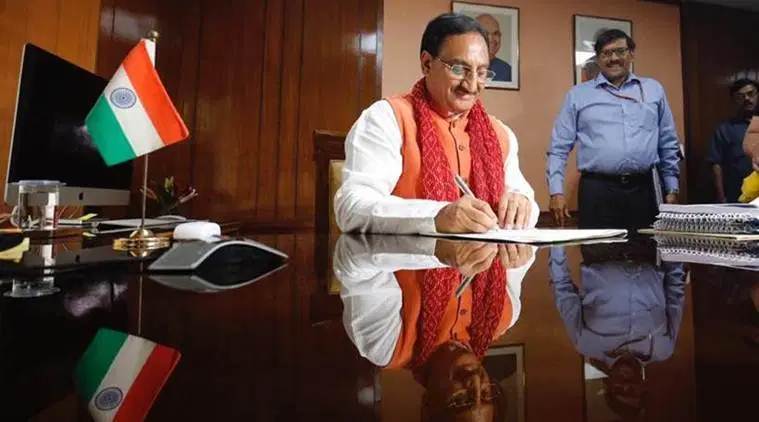 HRD Minister Ramesh Pokhriyal Nishank.
HRD Minister Ramesh Pokhriyal Nishank.
The HRD Ministry has tweaked the draft National Education Policy (NEP) to dilute the provision on extending the Right to Education (RTE) Act up to Class 12 and also include three years of early childhood education.
The final policy document states that the RTE Act “will be considered for extension” as opposed to the draft, which assured extension.

The draft NEP was submitted by a group of experts, led by former ISRO chief K Kasturirangan, to the HRD Ministry in June, and uploaded online for public feedback. The government received 2 lakh suggestions and is set to seek the Cabinet’s approval for the final 50-page policy.
The final NEP has also tweaked the suggestion in the draft policy on starting a National Tutors Programme (NTP) and Remedial Instructional Aides Programme (RIAP). Both were meant to strengthen basic reading and mathematics skills.
Under NTP, the best performers in each school would have been roped in for up to five hours a week as tutors during school hours for fellow students who need help. RIAP was a 10-year project to draw instructors — especially women — from local communities to help students who have fallen behind and bring them back into the fold.
The final NEP has endorsed only one-on-one peer tutoring. “Peer tutoring can be taken up as a voluntary and joyful activity for fellow students under supervision of trained teachers and by taking due care of safety aspects… it will be made far easier for trained volunteers — from both the local community and beyond — to participate in this large-scale mission of the schooling system,” the final NEP states.
The draft had proposed a new three-tier institutional system for higher education under which, by 2030, all institutions will either become research universities or teaching universities or colleges running undergraduate programmes.
Story continues below this ad
In the final NEP, the categorisation of institutions under a hierarchical structure has been given up. In its place, classification based on the main purpose of the institution — research or teaching — has been retained.
Lastly, the government has also removed the strict deadline prescribed by the Kasturirangan Committee to phase out the system of affiliated colleges. The draft suggested that, by 2032, all colleges affiliated currently must develop into autonomous degree granting colleges or merge completely with the university that they are affiliated to, or develop into a university themselves. The final document only speaks of “gradually phasing out the system of ‘affiliated colleges’”.

 HRD Minister Ramesh Pokhriyal Nishank.
HRD Minister Ramesh Pokhriyal Nishank.






























